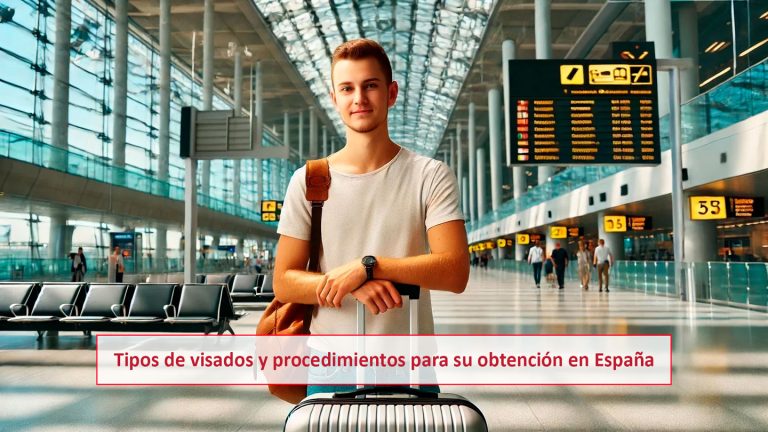
Spain is a country that receives thousands of foreigners every year for very diverse reasons: tourism, studies, work, investment or family reunification. In order to be able to reside or remain legally in Spanish territory, it is essential, in most cases, to obtain a visa appropriate to the specific situation of the person concerned.
A visa is an administrative authorisation managed by the Ministry of Foreign Affairs, European Union and Cooperation that allows a foreigner to enter and, where appropriate, reside or stay in Spain for a certain period.
The Visa must be requested, as a general rule, at the Spanish Consulate of the applicant’s country of origin or legal residence and its purpose may be simply transitory (such as an air stopover), a short stay, or a prolonged residence.
Spain distinguishes between short-stay visas (less than 90 days) and long-stay visas (more than 90 days), mainly regulated by Organic Law 4/2000 on the rights and freedoms of foreigners in Spain and their social integration and its implementing regulations (Royal Decree 1155/2024).
In accordance with current regulations, visas are grouped into three main categories:
The airport transit visa is rarely used and is not intended to stay in Spain, so it does not require further research.
This visa is intended for those who wish to stay in the Schengen Area for a limited time: up to 90 days within a period of 180 days, i.e. for 6 months you can enter and leave the country counting only the days you stay there, not being able to exceed 90 days of stay in that total time of 180 days (6 months).
It is commonly used for sightseeing, business, or family visits.
The extension of this visa is only possible in justified cases – for humanitarian, serious personal or force majeure reasons – and always within the legal limit of 90 six-month days.
This group covers all those cases in which the stay in Spain is longer than 90 days. It includes, but is not limited to:
It allows the entry of foreigners who are going to carry out educational or volunteer activities for an extended period. The visa implies the authorisation to stay, although if it exceeds six months, the Foreigner’s Identity Card (TIE) must be applied for within one month of arrival in Spain.
It is aimed at those who have already obtained prior authorisation to reside or work in Spain. It allows legal entry to begin residency, with the TIE being mandatory if the duration of the stay exceeds six months.
It includes different subtypes, including:
Each of these visas requires the fulfilment of specific conditions, such as not having a criminal record, presenting a medical certificate or demonstrating sufficient financial means, in addition to having paid the administrative fees.
This is a discretionary visa that can be granted for reasons of public interest, health, security or foreign policy. Its duration does not usually exceed one year. In justified cases, the presentation of the criminal record certificate may be exempted.
This visa allows you to reside in Spain for up to 12 months with the aim of finding work. If during this time the applicant obtains a contract, the employer can apply for the corresponding authorisation, which automatically extends the visa.
The processing is generally carried out in person at the Spanish Consulate corresponding to the applicant’s country of residence. It can also be managed through authorised external centres or, in some cases, electronically, if there is a digital platform enabled for this purpose.
The application may be submitted by a duly accredited legal representative. In exceptional cases, such as health problems or residences far from the consulate, this representation may be allowed even outside the general cases.
Once the application has been submitted and the acknowledgement of receipt with the date of submission has been issued, the documentation will be reviewed and, if necessary, additional information, a personal interview or correction of errors will be required.
Applying for a visa is a process that requires preparation, patience, and precision. Spain offers a wide range of possibilities to reside legally in the country, whether for studies, work, investment or family reunification. Each type of visa has its requirements, advantages, and limitations, so it’s essential to choose the right one from the start. An error in the documentation or an incorrect choice of visa type can result in the denial of the visa, the loss of opportunities and having to start over with the consequent lost time.
Therefore, having specialized legal advice is a guarantee of legal certainty and peace of mind.
Sometimes the Tax Agency carries out inspections because it suspects that some legal figure is…
What is a loan for use Agreement? The Loan for Use is a legal concept…
Do you work on commission? If so, you should know that the legal status of…
On July the 9th, 2021, Law 11/2021, on measures for the prevention and fight against…
“It’s not Common to Reveal Internal Secrets, but the Sector must Continue to Professionalize; We…
On December the 2nd, 2025, the Council of Ministers approved Royal Decree-Law 15/2025, which postpones…